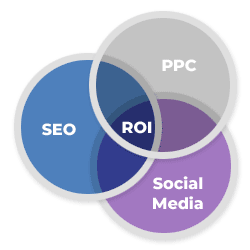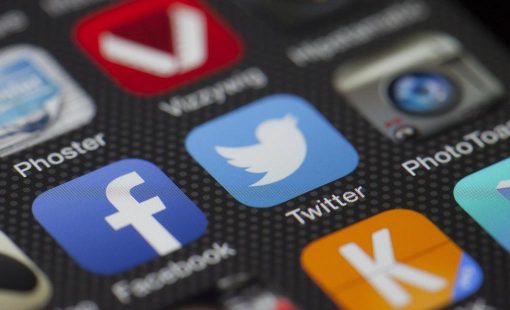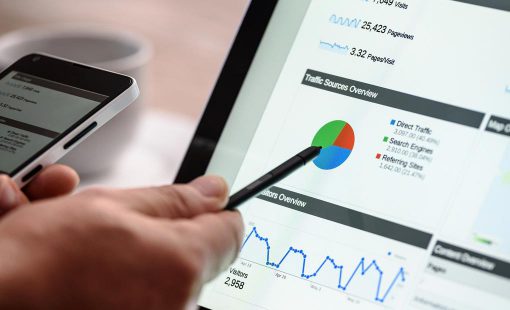With so many activities now available to companies and marketers working in the digital arena, it is often easy to lose track of your final objective. At the end of the day, all businesses have one main purpose – earn revenue.
That doesn’t mean you shouldn’t have great products or amazing customer service, but ultimately what all your marketing activities should do is make your business profitable, so it is important to use the tools at your disposal carefully. Each £ or $ you invest in marketing should bring revenue.
Choosing the right marketing channels

While those 3 disciplines work well on their own, they produce the best results when used together in an organised digital strategy.
There are of course many more activities you should consider for digital marketing such as display advertising, email marketing, affiliate programmes, PR … but SEO, PPC and social media will often be at the core of any strategy.
What to use them for?
- SEO (or search engine optimisation) is the art/science of getting your website listed in the search engines for specific keyword searches by web users. It not only involves work on your website (content, metadata, technical set up) but also, and even more so these days, a lot of work on getting good quality links back to your website. Because of the complexity of SEO, it should be seen as a long term strategy with great return on investment as a lot of the work can be done in-house if you have the right skills. It is one of the cheapest ways to get your brand out on the internet and make it visible to millions of potential customers.
- PPC (also known as pay per click, paid search) relies on paid advertising on the search engine results pages. As it is the most popular scheme out there, we need to mention Adwords, Google’s own PPC programme. The basic principle here is simple: you join a programme, bid on keywords, and when these keywords are searched by users your targeted ads will display on the search engine results page. You’ll then pay the bid amount for these clicks – simple!
Also it can get expensive in highly competitive markets, PPC is a great way to drive traffic and conversions on your website ad it is extremely reactive, meaning that you can modify your ad campaigns at any time. ROI margins are usually tighter on paid search, but its highly targeted approach makes it an invaluable tool to drive revenue. - Social media is still the new kid on the block in digital marketing even though social networks have been around for quite a while now. We probably all already have personal accounts on Facebook, LinkedIn or Twitter, but until a few years back, companies were not using social media in their strategies. Things have changed so much that it is now becoming rare to see a business not undertaking some form of social interaction.
There are obviously great benefits in using social media like improved customer service, increased brand awareness and recognition as well as the ability to reach new audiences via communities. But what many people don’t realise yet is that there are some great SEO benefits too as search engines, and more specifically Google, now include social signals (or social interactions) in their ranking algorithms. To put it simply, the more visible, shared and talked about your company is on social networks, the better it is for your SEO. So don’t hesitate to use your social accounts to share valuable content, engage with your target audience and build authority as part of your strategy.
A balancing act
To get the best return on investment for your business it is important to find the right balance of activities. What you need to do is use the 3 channels and identify in what proportion you should use each one of them to get the best revenue. The point at which all the channels work coherently with each other will bring your the best ROI.
It is not possible to give definitive rules on how much to use each discipline as it varies from business to business, but as a rule of thumb for a new online business, use more PPC in the beginning to ensure search engine visibility while your SEO activities start developing in the background. When your level of organic search engine traffic starts increasing, test slightly lower paid budgets and assess how it impacts your bottom line. In the meantime use social networks to increase brand awareness and recognition and start building a community of loyal followers that will endorse your brand.
One of the best piece of advice we can give you is to test and refine your strategy until you find the right balance, the point at which each channel gives you the best ROI possible. Digital marketing is not by far an exact science, so try things, monitor results and adjust as necessary.
And as usual if this seems like too much of a daunting task, contact Mahon Digital for help!
PS: Mahon Digital UK will be 3 years old soon and Mahon Digital Finland will be 1 year old so we wanted to thank our loyal clients for trusting us with their digital needs. If you’re already working with us and would like to share your experience, get in touch. And if you’re considering working with us, don’t hesitate, you’ll be in good hands, wherever in the world you’re doing business. And remember, this is just the beginning for us, so keep reading this blog regularly for more exciting news.




